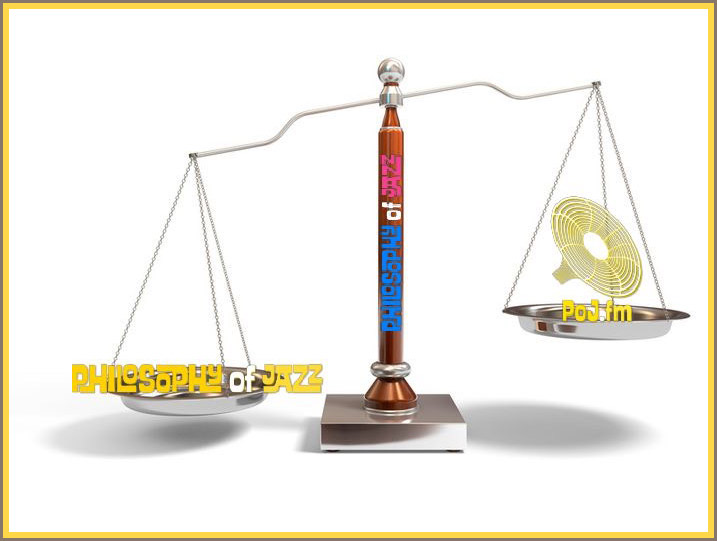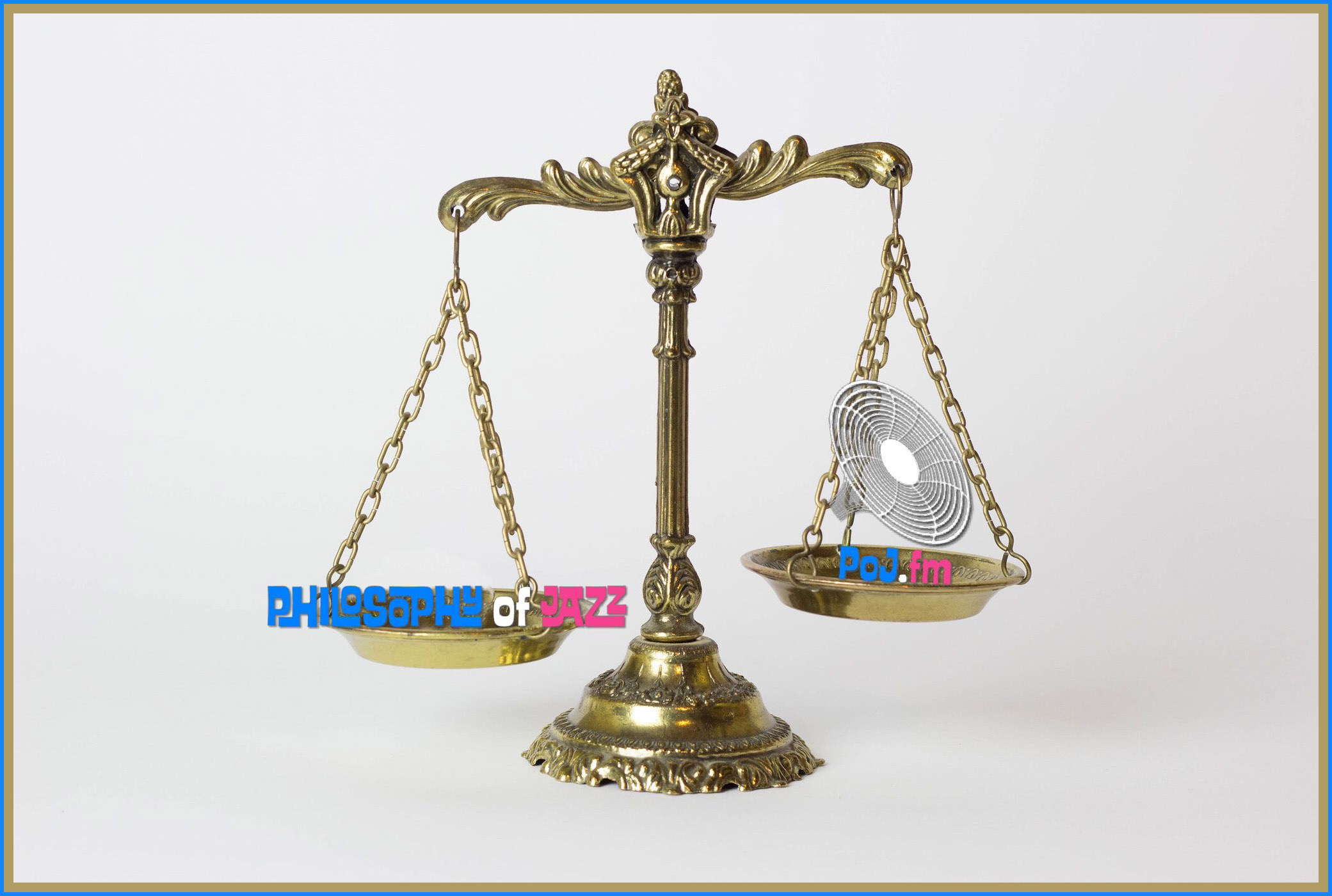Ontimpr9. How two substantial jazz improvisations could be identical
Contents
Discussion[edit]
Perhaps unrepeatability is the wrong concept. Rather it is something like unrepeatability that demands further intellectual investigation. It is a fact that even as great a soloist as Charlie Parker could not repeat any of his improvised solos even immediately afterwards as another take.
We know WHY he could not repeat it. First, it would be awkward and Bird in trying to remember what he just played will interfere with his musical timing. Second, because remembering what one has done and trying to incorporate it into an improvisation is a radically different form of cognitive processing than what occurs whenever producing an original improvisation making it virtually impossible, practically speaking, to accomplish a perfect repetition of an earlier improvisation. The rhythm will likely necessarily be affected and so be different, hence not the same improvisation the second time. Bird knew not even to bother trying because it just wouldn't work.
The passion of playing from an unconstrained improvisation will be different from that of trying to reproduce an earlier improvisation and this will undoubtedly affect the tone and timbre of one's playing.
The level of spontaneity will necessarily be different from an original improvisation compared to an attempt to repeat it.
Furthermore, even the accompanists will not be playing identically to how they played the first time thereby changing what the improvising soloist was reacting to during his/her performance.
Lastly, while the first performance counts as an improvisation in the full-blown sense attempting to exactly repeat an earlier improvisation is NOT an improvisation in the same full-blown sense since it is trying to repeat something, which one was not trying to accomplish during the original improvisation since there existed nothing that one could be repeating since it is an original composition during that improvisation.
Attempting to reproduce an improvised solo then is likely to affect and change the rhythm, the tone, the timbre, and probably even the melody since it is hard to remember exactly everything one just did in a complex improvisation. Since rhythm, tone, timbre, and melody are what constitute a performance, if they are all different, then one has not repeated themselves with any accuracy, so it is not the same improvisational musical product.
CONCLUSION: We can conclude then that there is something like an almost impossibility of repeatability of an improvisation, generally speaking, although it is still hard to understand exactly what this ends up amounting to.
Relevance of the Possibility of Two Substantial Jazz Improvisations Being Identical[edit]
➢ Almost never will two substantial jazz improvisations be identical improvisations. Why then care whether this could even occur?
We know it to be highly unlikely that improvisers ever end up mirroring each other because there are so many variables during a performance that can influence the trajectory of a solo including rhythmic, harmonic, and melodic input from other musicians.
Here is a reason why the possibility of identical improvisations could be philosophically significant. Suppose an ontologist has a theory of kinds. In this theory, not unintuitively, is a commitment that something can be a kind if and only if it is possible to have more than one entity of this type possibly instantiated. In other words, or put more modally, there exists at least one possible world with two or more exemplars of this type. Put more simply, every kind must possibly have more than one member in its set. On this view, God, being a uniquely existing entity (because on logical grounds there cannot exist two different supreme beings), cannot constitute a kind of thing. There is no kind Godhood because only one thing can have it. Suppose that is this ontologist's theory of kinds.
➢ Now ask, "Can a substantial jazz improvisation qualify as a kind or type of thing?"
Answer: Well, at least it cannot be ruled out as a kind, or a part of a kind, on the grounds that it is impossible to have two of them.
TENTATIVE CONCLUSION: If an improvisation can be a kind, then perhaps it can be a work of music as well. Or, at least it can be part of a work of music like a song, tune, or number that is itself a kind.
Yet some philosophers, such as Lee B. Brown, have held that repeatability is a requirement for being a musical work.
➢ Why should repeatability even be a relevant consideration or factor?
Presumably, the intuitive idea for having repeatability as a necessary condition for being a musical work is that musical works are required to be 'stable' and unchanging. Being a musical work requires that there exists something that has identity conditions. The intuition is that if something is non-repeatable then it is not something that is stable and unchanging. But this last claim is false. Assume for the moment that improvisation "I" by Charlie Parker can never be repeated. Is Bird's improvisation "I" stable and unchanging? Yes it is since nothing can possibly change it after it has been played making it stable. Furthermore, it is false that it is unrepeatable since another musician, or even Bird himself could listen to a recording of "I" and learn to memorize it. After complete and accurate memorization a musician could repeat the solo note for note, as the band Mostly Other People Do the Killing did when they tried to exactly copy all sounds from Miles Davis's classic album "Kind of Blue."[1]
Theoretical Possibilities for Two Identical Substantial Improvisations[edit]
Practically all theorists seem to believe that there could never be two identical substantial jazz improvisations. To see that this is false all philosophers have to do is develop theoretical situations wherein this could possibly happen and by possibly happen is meant not self-contradictory or contradictory. The scenarios can be as far-fetched as one might desire so long as (A) they are not self-contradictory scenarios because then they could not possibly occur and (B) prove that two qualitatively identical (more or less) substantial jazz improvisations possibly could occur.
➢ Under what scenarios could there occur two identical substantial jazz improvisations?
Right away you should notice that the word "substantial" is doing a lot of important theoretical work. For consider what can happen to two non-substantial or unsubstantial, i.e., short, jazz improvisations—they can and often are identical.
If two musicians are each playing the same song and when it comes time to improvise each only plays seven notes (or anything short and believable) then it is easily conceived and should be immediately conceded by any possible opponents that two musicians when improvising might play the same, here, seven notes in a row and with comparable timbre and rhythm.
Conclusion: Non-substantial or unsubstantial (short) improvisations can occur with multiple instaniations and exemplifications. Not only do musicians have identical short solo improvisation passages, but individual musicians have identifiable riffs and licks they use over and over, and other musicians use or reference famous solo riffs or passages and might do so in more or less identical ways more than once.
As theoreticians, and as defenders of the common sense view that the same song can be played twice, it must be possible to play the same musical passage when that passage is short twice the same way. The conclusion above has been convincingly confirmed or we have to backtrack and discuss whether the same song can ever be played twice.
Once you are convinced that the same seven notes can be played twice during an improvisation, arguments can be built upon this theoretical foundation or basis. If seven notes can be improvised twice by musicians so as to count as identical improvisations, then what is the upper limit for identical note playing between two performances? Few would dispute that two musicians could each play ten notes in a row the same way during an improvisation. There is in fact no upper bound beyond which two improvisatory performances could not share the same notes, etc. therefore it is only a question of probability.
Improvisations in music, just like in conversations using a natural language, can have many of the same components that are identical to each other in various ways and to various degrees. It is the overall result, the completed sentence as it were, or the entire substantial improvisation, that has a high probability for uniqueness.
Let's try it with an English sentence where every word and some of the phrases have been said many times and repeated, but never the entire sentence, nor will this sentence ever be repeated, or said by anybody in the past or future if it had never been written here. Here goes:
The next sentence is a mono-exemplified sentence that if never written down would never have been exemplified in the history of the universe:
- Exceptional time traveling avocados do not mind the lapses in sleep cycles often found in dogs or Martians.
Nevertheless, the odds of this sentence being said as a possibility are not zero. Just extremely small. The same thing, at least something comparable relative to odds, occurs for substantially long jazz improvisations. The odds are low probability anyone would ever play that same improvisation during his or her improvisation, but the odds are not zero, just very low probability. Since it is not self-contradictory, in principle, for two identical and substantially long jazz solos to occur it is theoretically possible and jazz solo's could be multiply instantiated, even if, in fact, they are only ever mono-exemplified, i.e., occur only once.
Someone might find the foregoing reasoning problematic because of the low probabilities involved in two substantial jazz improvisations being identical. If so, this would be irrelevant as a response. The question is not about the likelihood of this ever actually happening, but only whether it is physically possible or impossible. It is not physically impossible because its occurrence is consistent with the laws of nature. Therefore it is physically possible to have multiple instantiations of the same improvised solo.
Our conclusion that jazz improvisations are not in principle unrepeatable has support from Marcello Ruta of the University of Bern when he writes in the abstract for his paper "Horowitz Does Not Repeat Either!: Free Improvisation, Repeatability and Normativity."
“A common way of characterising improvisation, and even more specifically free improvisation, is to point out its unrepeatability. Such characterisation misses the point. If we consider improvisation as a sonic product, the above characterisation is plainly false, as it is possible for a performer, who has never been acquainted with a previously improvised performance, to improvise by chance that same sound structure a second time. If we consider improvisation as an overall performance, then unrepeatability becomes a non-informative characterisation, as it doesn’t help at all in distinguishing an improvised performance from any other live musical performance.”[2] (bold and bold italic not in original)
If something is physically possible, then it also necessarily is logically possible because if it were not logically possible it could not be physically possible.
However, to help persuade doubters and naysayers to become more sympathetic to the logical possibility of two substantial jazz improvisations being identical consider the following scenarios.
Reasons why two identical substantial improvised solos are logically possible[edit]
- SCENARIO (1): Same musical judgments are made during two improvisations
- Two musicians have greatly and studiously studied some famous improvised solo. They have each memorized it and could copy it easily during a performance, but neither wants just to replay this famous improvisation. So, they each start out referencing this famous solo, say that of Coleman Hawkins (1904–1969) during his famous "Body and Soul," then after this opening referral they each independently make musical decisions as to how to play off of this same Hawkin's improvised solo. At the end, we compare their two improvised solos. It turns out they each made the same musical decisions as to how their improvised solo would progress and the two solos are identical. This is not self-contradictory, therefore it is logically possible to have identical substantial jazz improvisations.
- SCENARIO (2): Improviser unknowingly repeats himself
- Or, a single male musician, perhaps an intermediate player, plays a nice improvisation that is new and it is recorded at that time. A year later the same musician plays the same song and we record his improvisation. The musician believes of himself that he was improvising. However, when we play back his second recorded improvisation it is identical to the one he did a year before. This musician might be criticized for repeating himself unknowingly, but it seems possible he both could believe he was improvising, but makes all of the same musical choices the same way twice unbeknownst to himself in the spur of the moment.
- SCENARIO (3): Tricky quizzer plays same improvisation recording twice
Lastly, this next scenario seems relevant for persuading someone that there is a need for recognizing two substantial jazz improvisations as the same improvisation but with two exemplifications.
- Suppose Fred enjoys quizzing people's abilities regarding recognizing similarities between musician's improvised solos. Did Coltrane use this same riff as Art Pepper during their respective solos, that sort of thing. As a sort of a trick, Fred plays the person being quizzed the same recorded improvised solo twice and asks the quizzed person to compare the 'two' solos. Should the quizzed person reply by saying, "Hey, those two (exemplications of an improvised solo) are the same improvised solo the quizzed person would be saying something true. Therefore, there can exist two different exemplifications of the same improvised solo.
- OBJECTION (1) to Tricky Quizzer scenario: Someone might object by claiming that in neither case during the quizzing did an improvisation take place because each time what the quizzed person listened to was only a recording and a repeated recording of an improvisation. Neither musical item heard in the Tricky Quizzer scenario was just an improvisation because each was a recording of an improvisation and all parties concerned agree that the same recorded track of music can be instantiated and exemplified more than once.
- REPLY to OBJECTION (1) to Tricky Quizzer scenario: Suppose the objector's point is conceded. Both 'items' were recordings of an improvisation so are not examples of two separate occasions where the same improvisation took place, but only two instantiations of the same recorded improvisation.
- To convince the objector it is logically possible to have two identical substantial improvisations we have the objector sit out in the audience facing two curtains labeled A and B. The objector cannot see what causes the music heard behind either curtain. Prior to the concerts start it is truthfully announced that what will be heard are improvisations and they are either recorded or performed live. After first hearing improvisation A followed by improvisation B, the objector exclaims that he or she just heard identical musical performances. We inform the objector that both performances were, in fact, improvisations. The objector concludes that if each was an improvisation and that they were identical in musically relevant features that it was logically impossible that there could have been two different musicians who played first behind curtain A and then behind curtain B. The objector reveals shock and disbelief when stepping out from behind the two curtains are live musicians who had been in separate sound proof booths and had not heard the other at any time. Because this scenario is imaginable, it is logically possible since it is not self-contradictory and they could have played the same improvisation.
REVIEW: By way of review, what the above arguments establish are the following with respect to the theoretical possibility of having two substantial jazz improvisations be identical.
- Metaphysically identical because qualitatively identical. Two short improvisations can be musically qualitatively identical. Non-substantial or unsubstantial, i.e., short, improvisational passages can be identical and have possible, and sometimes actual, exemplifications and instaniations. Musicians can play the same sequence of notes twice during improvisations.
- Physically possible. Not inconsistent with the laws of physical nature. The existence of two identical substantial, i.e., long, jazz improvisations does not violate any physical laws of nature. Therefore, it is physically possible.
- Mathematically possible. The fact that the existence of two identical substantial jazz improvisations occur has a quantitative probability of occurring. The probability of two identical jazz improvisations occurring is non-zero, therefore it is mathematically possible.
- Logically possible. Not self-contradictory, therefore it is logically possible to have two identical substantial jazz improvisations be instantiated.
- Accidentally possible. The same musician accidentally reproduces identical improvisations at two separate performances.
- Two identical sets of improvised musical judgments. Musicians who know previous performances of a tune and its improvisations independently make all of the same musical judgments during their improvisations and produce identical improvisations.
NOTES[edit]
- ↑ For a report on the group's reception, see Marc Myers's Wall Street Journal article "Miles Davis's Jazz Masterpiece 'Kind of Blue' Is Redone: The band Mostly Other People Do the Killing is releasing 'Blue,' a CD that is a note-for-note copy of the classic album," updated October 10, 2014.
- ↑ Marcello Ruta, "Horowitz Does Not Repeat Either!: Free Improvisation, Repeatability and Normativity," in Proceedings of the European Society for Aesthetics, ed. Dan-Eugen Ratiu and Connell Vaughan, vol. 9, (Fribourg, Switzerland: European Society for Aesthetics, 2017), 510.


